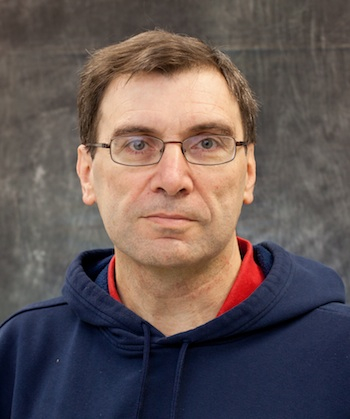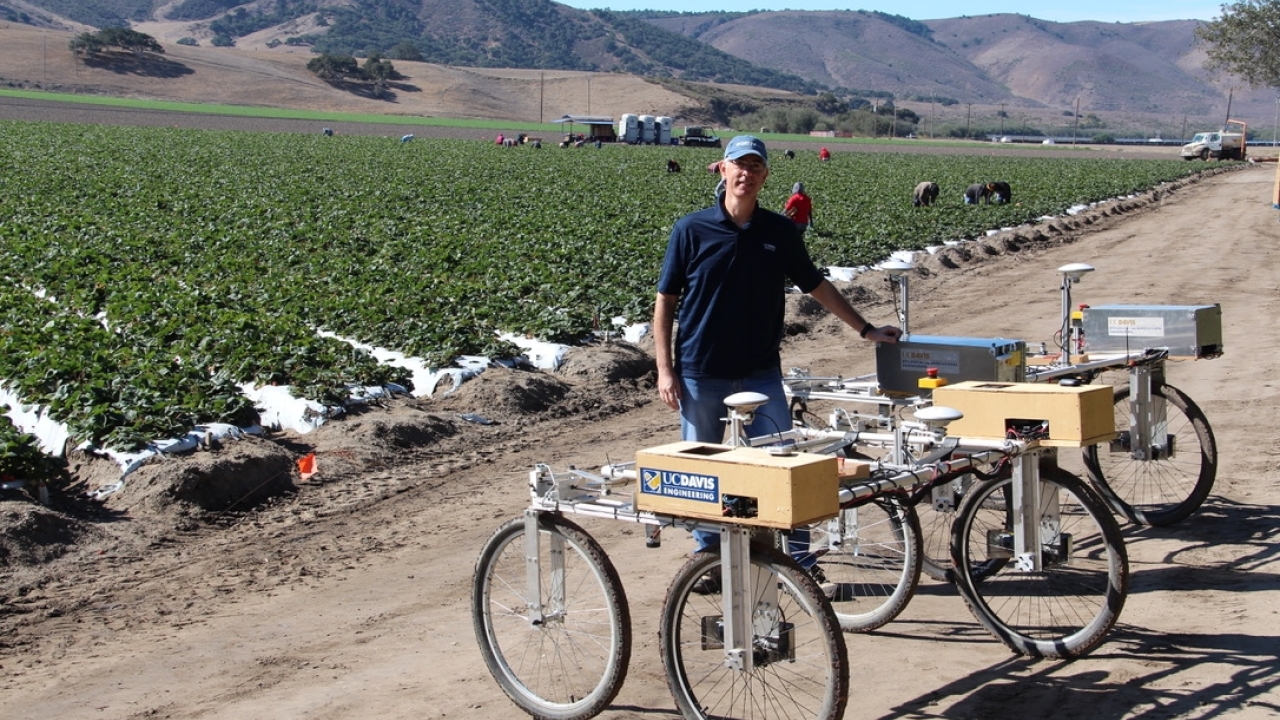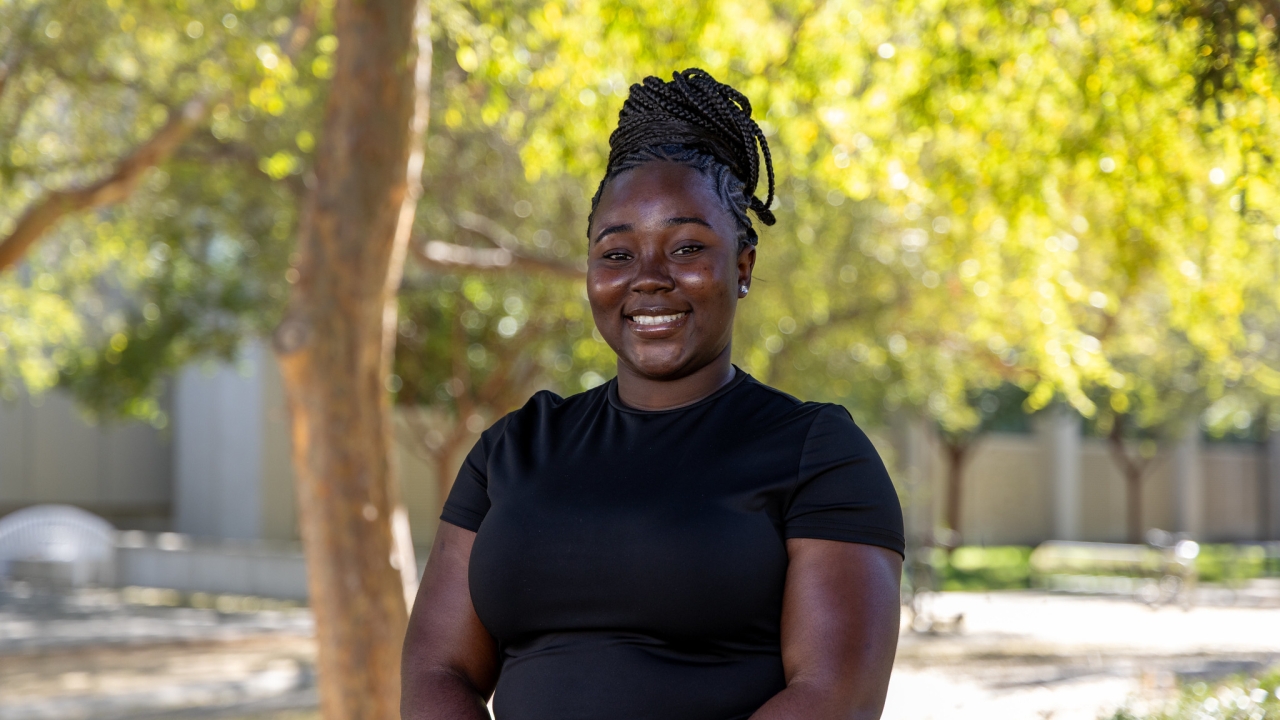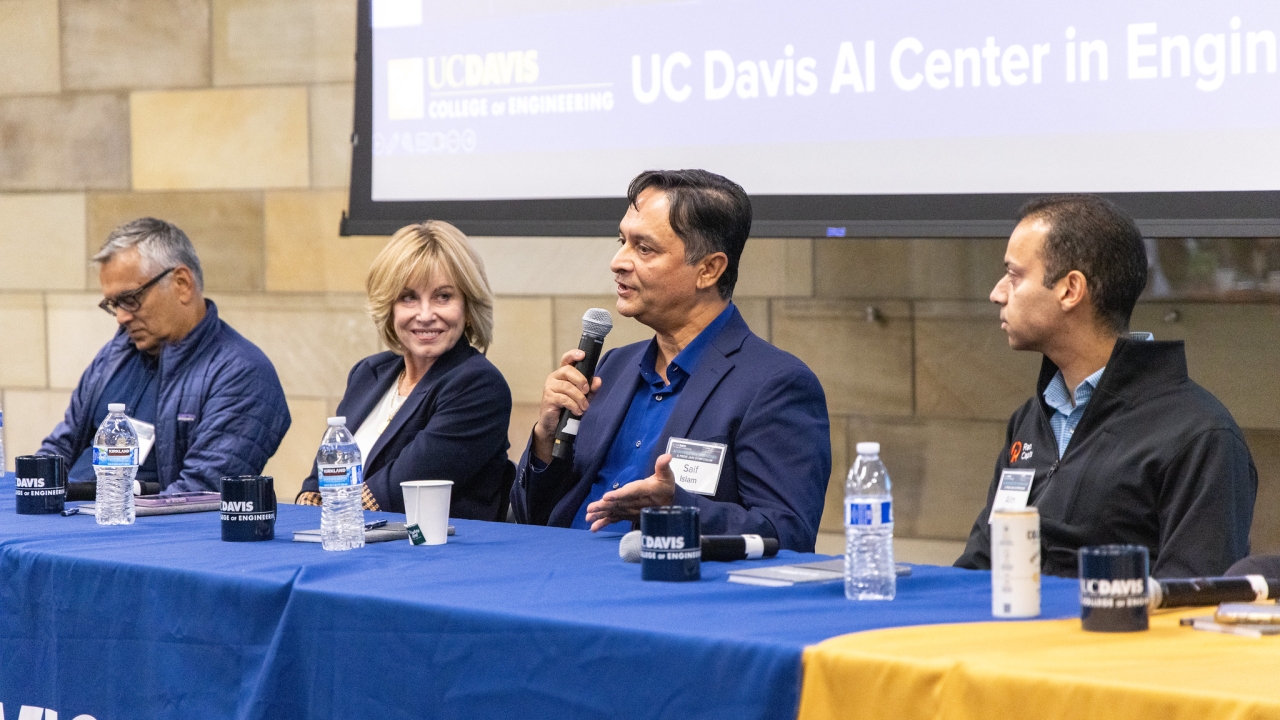Patrice Koehl to Direct New Data Science Initiative
DAVIS, Calif.; Feb. 14, 2014 – Patrice Koehl, a professor in the UC Davis Department of Computer Science, has been named founding director of the campus’ new Data Science Initiative (DSI). Koehl will embrace this new responsibility in addition to his other appointments as Associate Director of Bioinformatics, at the UC Davis Genome Center; and as a visiting professor in the National University of Singapore’s Department of Biological Sciences.
 The goal of the Data Science Initiative is to develop an intellectually stimulating environment for campus-wide faculty to interact with researchers who tackle “big data” challenges. As founding director, Koehl will provide the leadership to define and implement this campus vision, while encouraging a collaborative environment for the computer scientists, statisticians and domain-expert faculty who will work on such frontier research.
The goal of the Data Science Initiative is to develop an intellectually stimulating environment for campus-wide faculty to interact with researchers who tackle “big data” challenges. As founding director, Koehl will provide the leadership to define and implement this campus vision, while encouraging a collaborative environment for the computer scientists, statisticians and domain-expert faculty who will work on such frontier research.
His responsibilities will include identifying infrastructure needs —technology, space and staffing — to achieve the goals articulated in the DSI strategic plan; identifying current faculty and academic programs relevant to the goals of the initiative; defining and developing a set of initial projects in collaboration with current faculty and researchers; and developing and implementing a start-up education/training program for existing UC Davis faculty, researchers and students.
Koehl, born and raised in France, completed his undergraduate work at the Ecole Centrale de Paris, and then earned his PhD in molecular biology and biophysics at the University Louis Pasteur in Strasbourg. A faculty appointment at the latter was interrupted in 1997 by what was expected to be a brief sabbatical at Stanford University, but Koehl liked California so much that he decided to remain. He joined UC Davis in 2004, with joint appointments as professor in the Department of Computer Science and the Genome Center.
Koehl is fascinated by biological systems and the shapes that control their functions; such shapes are defined by a complex network of physical interactions, both internal to the systems and external through interactions with their environments. His research addresses this connection between physics, geometry and biology, with a focus on molecular systems and how the morphology of a biological system is specified, and how it changes over time. Such work involves developing new mathematical and physical models, as well as new methods in computational geometry and scientific computing, and by employing large-scale, high-performance computing simulations for the analysis of biological systems.
The nascent UC Davis DSI is one of many data science centers and institutes being created at universities across the country, in an effort to facilitate improved collaboration among data analysts who too often remain segregated in disparate labs and departments, even within a given campus.
One of the most notable new data science initiatives is funded by a $37.8 million grant from the Moore Foundation and Sloan Foundation; it partners UC Berkeley’s new Institute of Data Science with New York University and the University of Washington. That tri-part collaboration, unveiled in November by the White House Office of Science and Technology Policy, typifies the DSI template: to advance data-driven scientific discovery and technological process in academia, industry and government.




